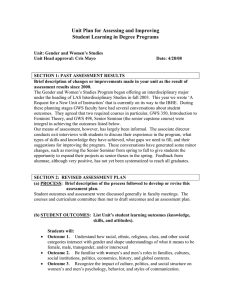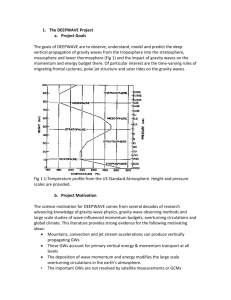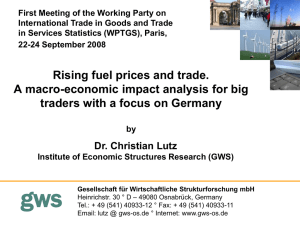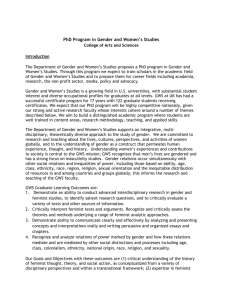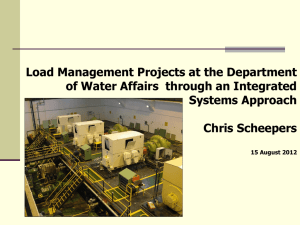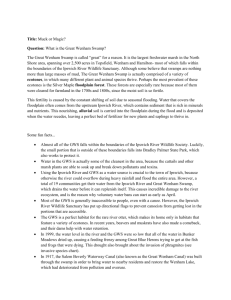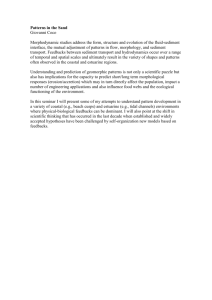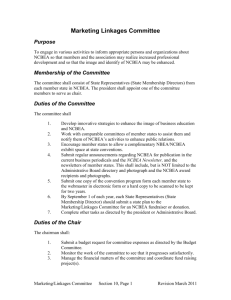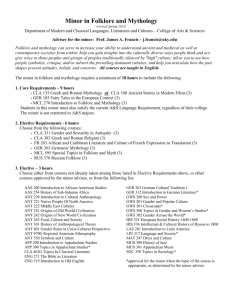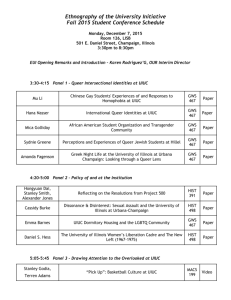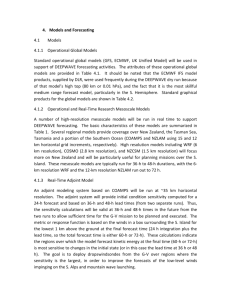02_GWSP_Endejan
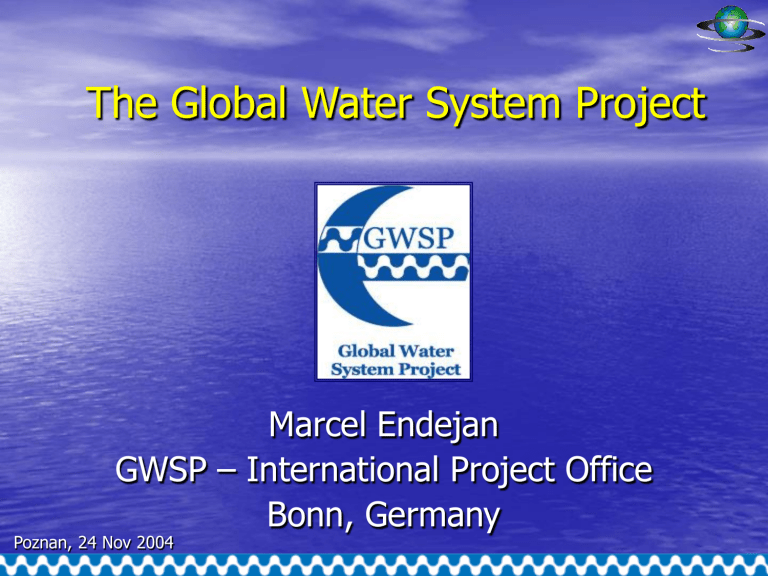
The Global Water System Project
Marcel Endejan
GWSP – International Project Office
Bonn, Germany
Poznan, 24 Nov 2004
Overview
Global Water System Project
Institutional Background
Framing Questions & Themes
Implementation
Linkages to BALTEX
ESSP
Dynamics of the GWS
GWSP – Central Tenet
Human-induced changes to the global water system are now globally significant and are being modified without adequate understanding of how the system works
The Global Water System
Working definition
The global suite of water-related human , physical , biological , and biogeochemical components and their interactions .
BIOLOGICAL &
BIOGEOCHEMICAL
COMPONENTS e.g. species richness, habitat quality, water quality
PHYSICAL
COMPONENTS e.g. moisture transport, precipitation, river discharge, water storage
WATER
CYCLING
HUMAN COMPONENTS e.g. water related institutions, water engineering works, water use sectors
ESSP Projects
BALTEX
GWSP Research Niches
Focus on global environmental change
Science driven but policy-relevant
Global perspective, taking local- and watershed processes into account
Broad temporal perspective
(Past-present-future time domains)
Interdisciplinary & integrative
Focus on fresh water
Goals & Vision
Gain a new understanding about the global water system
Refine society‘s view of water
Create a vision of future possible states of the global water system
GWSP Framing Document
The Framing Committee
Joseph Alcamo (Chair), Hartmut Grassl, Pavel
Kabat, Felino Lansigan, Richard Lawford,
Dennis Lettenmaier, Christian Leveque, Michel
Meybeck, Robert Naiman, Claudia Pahl-Wostl,
Charles Vörösmarty
Scoping Team
Carlo Jaeger, Dennis Lettenmaier, Christian
Leveque, Harry Lins, Michel Meybeck,
Madiodio Niasse, and Charles Vörösmarty www.gwsp.org
Overarching Question
How are human actions changing the global water system and what are the environmental and socio-economic feedbacks arising from the anthropogenic changes in the global water system?
Framing Questions (Themes)
What are the magnitudes and key mechanisms of anthropogenic and environmental changes in the GWS?
What are the main linkages and feedbacks within the Earth system, arising from changes in the GWS?
How resilient and adaptable is the
GWS to change, and what are sustainable management strategies?
Mechanisms by which humans are affecting the GWS reservoirs, withdrawal, transfers resulting in stop-flow events, changes in nutrient and sediment fluxes etc.
Glen Canyon Dam, USGS
1984
Theme 1: Magnitudes and
Mechanisms of Change
Related activities
1.1: Water Governance & the GWS
1.2
: Land Cover Changes …
1.3
: Climate Change …
1.4
: Water Diversions …
1.5
: Nutrient and Sediment Transport …
Framing Questions (Themes)
What are the magnitudes and key mechanisms of anthropogenic and environmental changes in the GWS?
What are the main linkages and feedbacks within the Earth system, arising from changes in the GWS?
How resilient and adaptable is the
GWS to change, and what are sustainable management strategies?
Theme 2
Linkages and Feedbacks
Related activities
2.1
: Linkages at Different Spatial Scales in the Global Water System
2.2
: Legacy of Human and Natural
Interactions in the Global Water System
Framing Questions (Themes)
What are the magnitudes and key mechanisms of anthropogenic and environmental changes in the GWS?
What are the main linkages and feedbacks within the Earth system, arising from changes in the GWS?
How resilient and adaptable is the
GWS to change, and what are sustainable management strategies?
Theme 3
Resilience and Adaptation
Related activities
3.1
: Water Requirements for Nature and
Humans
3.2
: The Nature of Adaptive Capacity of the
GWS
3.3
: Approaches to Enhance Adaptive
Capacity
3.4
: The Provision of Ecosystem Goods &
Services by the GWS
Cross-cutting Research Activities
Synthesis, Dialogue,
Capacity Building, Education
Goal: reach a large audience
Synthesise information
Dialogue with stakeholders / policy makers
Engage young scientist in international teams
Education programme
Co-operation with other research efforts
Implementation
Scientific Steering Committee
Members of Executive Committee
Prof. Dr. Joseph Alcamo (Chair)
Prof. Dr. Dennis Lettenmaier
Prof. Dr. Robert Naiman
Prof. Dr. Claudia Pahl-Wostl
Prof. Dr. Charles V örösmarty (Chair)
Full Scientific Steering Committee
15 scientists representing different regions/research fields
First full SSC meeting in February 2005
Implementation Phases
Programme definition and initiation (2 years)
Finalise research plan
Launch short, medium, long term initiatives
Programme implementation/product delivery (3)
First short and medium term results
Data synthesis and application of results (5)
Synthesis, application and distribution of results
GWSP & GEWEX/BALTEX
Coupled modelling of climate, land and hydrological processes
Inventories of surface water storage
Data and prediction of climate variability
Identifying worldwide impacts of water management
Regional climate modelling
Global climate change and water availability
Urbanisation and water resources
Conclusion
Global Water System Project
Consolidate various efforts into a unified, dynamic research programme
Broaden knowledge about the GWS changes; linkages & feedbacks; resilience and adaptive capacity
Establish monitoring indicators
New numerical models, GWSP database
Synergy effects in GWSP-BALTEX co-operation
Get In Contact
Global Water System Project
International Project Office
Walter-Flex-Str. 3
53113 Bonn, Germany
Phone: +49.228.73.6188
Dr. Eric Craswell eric.craswell@uni-bonn.de
Dr. Marcel Endejan marcel.endejan@uni-bonn.de
Ms. Lara Wever lara.wever@uni-bonn.de
